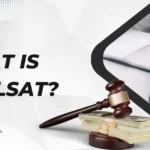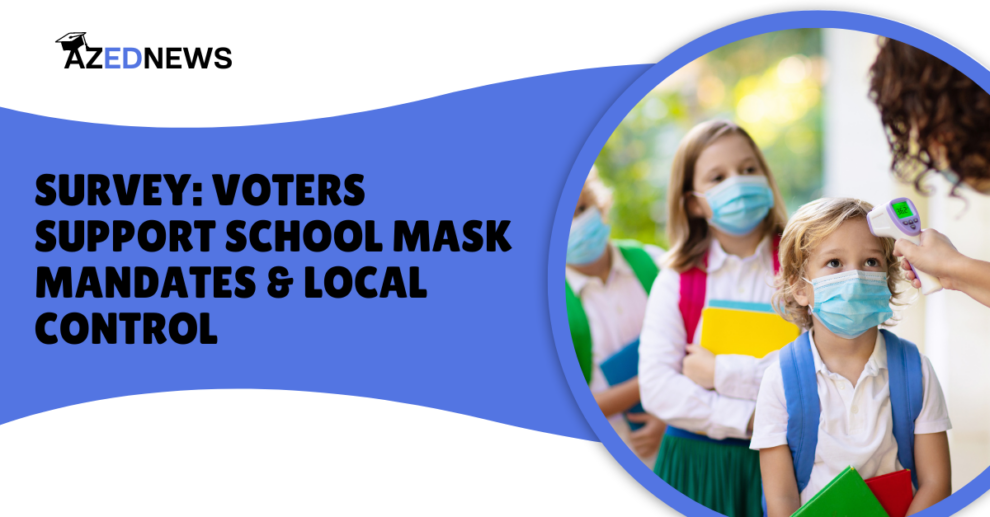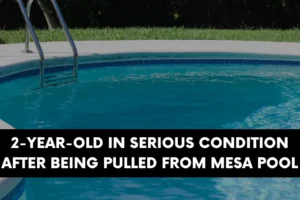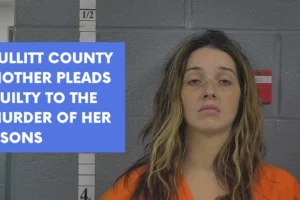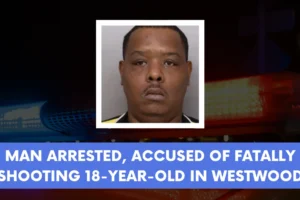Arizona voters statewide showed support for school mask mandates to prevent the spread of COVID-19 and school boards’ local control in making those decisions that affect students in their communities in a recent survey paid for by the Arizona Public Health Association and the Arizona School Boards Association.
Fifty-seven percent of Arizona voters agreed that individuals should wear masks while in local government, public schools and charter schools, and 53% thought those entities should determine their own mask requirements, according to an Aug. 30 – 31 landline and cell phone survey by HighGround, Inc. of 400 registered Arizona voters statewide likely to vote in the Arizona 2022 General Election who have a history of electoral participation.
“A majority of the electorate, including these likely voters who are going to show up in 2022, believe that at this time that individuals should be wearing masks in local governments, schools and charter schools, and in addition to that, schools and others should have the choice to make that determination for themselves,” said Paul Bentz, senior vice president of research and strategy for HighGround, Inc.
“As the Delta variant continues increase the wave of cases and hospitalizations in Arizona, voters clearly understand the importance of masks when it comes to health and public safety,” said Will Humble, executive director of the Arizona Public Health Association.
“In fact, a new study published in BMJ found that universal masking in classrooms reduced aerosol transmission by 800%,” Humble said. “The combined interventions of universal masking, natural ventilation, and HEPA filtration reduced transmission 3,000%.
“When it comes to masks, a large majority of the public supports their use in our government buildings and schools,” Humble said.
The Arizona Legislature prohibited public schools from mandating masks in the budget bills it approved, and Gov. Doug Ducey signed into law.
“Clearly, what the Governor and the Legislature proposed as part of the budget, they’re on the wrong side of the issue with the majority of the electorate,” Bentz said. “Their Republican base supports those distinctions of an anti-mask ban and this idea of not letting schools make this option for themselves, but the majority of the electorate do not believe that.”
Children’s and education advocates, including ASBA, and several individuals have filed a lawsuit challenging the prohibition on school mask mandates and other provisions included in the budget bills in Maricopa County Superior Court. As the lawsuit proceeds, a Judge has ruled schools may keep mask mandates in place until Sept. 29 when the law goes into effect.
“For the Arizona School Boards Association, the heart of the mask issue is local control,” said Ann O’Brien, president of ASBA’s board of directors and a Deer Valley Unified School District governing board member. “We believe that our member districts and their locally elected school board should be able to decide what’s best for their students and staff.”
“In general, voters support masks, but most importantly, they also support allowing our local school districts to have a choice on whether or not they would like to implement a mask mandate,” O’Brien said.
“When it comes to the lawsuit, I think this notion of local control is something that’s overwhelmingly supported by voters, and they think that they should be able to make these choices for themselves,” Bentz said.
“I know what’s at the heart of this lawsuit is can you put these types of mandates into a budget law and other items that aren’t directly related as sort of an end-run around to pass things that you may not be able to pass on your own,” Bentz said.
The voters polled for the survey were balanced to model the likely turnout of voters across party, age, region, and gender from the internal voter database maintained by HighGround Public Affairs.
“Most of the time, frankly, that’s what politicians care about, your decisions are driven by what’s popular with the people who are voting for you,” said Chris Kotterman, director of governmental relations for ASBA. “It’s good information to have to understand what we can use to motivate elected officials.”
When 57% of people likely to vote in the next election say they think masks should be worn in schools “that tells us that the Legislature is out of sync with what the voters are saying by a decent amount,” Kotterman said.
Fifty-three percent thought schools and local governments should determine their own mask requirements, which means “even Republicans feel like this idea that they’re prohibiting districts from doing what they think is best is a bad idea,” Kotterman said.
“It tells us we have support out there of at least half of the electorate for local control, and most people think that kids should be wearing masks at school, especially if they’re not able to be vaccinated,” Kotterman said.
Grant funding and vaccine mandate prohibition
Recently, Gov. Ducey said district and charter schools that offer in-person instruction and do not enforce a mask mandate may be eligible for $163 million in grant funding. Districts that require masks are not eligible for this funding.
About 62% of Arizona voters in the survey said they oppose grant funding only for schools that do not have a mask mandate.
“The Governor’s executive order is not popular. It is not supported by a large portion of the electorate,” Bentz said. “They see through it for what it is, which is incentivizing schools to follow the law as part of this discussion. And you’ve got large portions of Democrats and unaffiliated voters, in particular who don’t find it popular.”
“As we have seen with other polling on other issues such as the flat tax, the Republicans are alone on an island,” said Bentz, the pollster from HighGround who conducted the study. “Once again, it plays well with their base constituency, but it continues to push them further from other constituencies like independent and unaffiliated voters. Republicans might struggle in the 2022 General Election if issues such as wearing masks continue to dominate the political discussion.”
“That’s an interesting one, because it says that even Republicans, who don’t agree that kids should be wearing masks in school or some of them who don’t agree that it should be their choice to do it, they still think that this idea of basing conditional funding around no mask mandates is a bad idea,” Kotterman said.
“I think that you probably have a minority of individuals who would agree with the strategy that it doesn’t matter if school districts are doing what they think is best for teachers and students, they should still be punished if that’s what the Legislature said,” Kotterman said.
“It tells us that most people understand that districts are in a very bad spot and squeezing them financially for trying to do the right thing in this instance is not a good thing to do,” Kotterman said.
In addition, 51% of Arizona voters oppose the Governor’s executive order prohibiting any local government from requiring proof of COVID-19 vaccination from its employees.
“Vaccines are effective against the Delta variant, but transmission risk remains elevated among unvaccinated persons – particularly in schools,” Humble said. “Once again, the public understands this and a majority think that a private business or local public entity should be able to require proof of vaccination to help stop the spread of COVID-19.”
“Voters see the wisdom in the notion of schools having the ability to make their own policy to protect students and staff,” said Dr. Sheila Harrison-Williams, executive director for Arizona School Boards Association.
“Efforts like the law prohibiting school mask mandates and the executive order preventing entities from requiring proof of vaccine limit our choices and prevent our local elected officials from doing their jobs. The public understands these issues and the survey shows without a doubt that voters support local decision making,”Dr. Harrison said.
Who was surveyed and why
The poll was balanced for turnout with 42% of survey respondents are registered Republicans, 34% are registered Democrats, 8% are Independents, or other and 16% of respondents’ political affiliation was not determined.
The poll was balanced based on what voter registration will look like in the general election, Bentz said.
“Basically, what that means is Republicans continue to over-participate in these elections compared to their voter registration. It will be about an 8-point advantage in 2022. Midterm elections in Arizona are heavily Republican affairs, and I expect that trend to continue following the 2020 election,” Bentz said.
“With the Democrats winning the White House it will typically be the party not in power making gains, so I do think for the most part it should be a heavily Republican year,” Bentz said.
Bentz said one of the things they’re focused on going into the 2022 election is how independent and unaffiliated voters will engage.
“They are about a third of the electorate and they will make up about 25% or so of the mid-term elections. They generally underperform a little bit, but they are such a significant portion of this audience, because no one party can win this alone,” Bentz said.
“We see consistently the Governor and Legislative Republicans continue to push issues like the flat tax or the audit or other Prop. 208 issues that appeal to that narrow portion of their base, but we see independent and unaffiliated voters breaking against those items at a pretty significant margin over and over,” Bentz said.
“When it comes to this latest one on this mask mandate, the independent and unaffiliated voters by about two-thirds would prefer to have masks used in these facilities right now and 0ppose the Governor’s proposal to give more money to incentivize not having a mask mandate,” Bentz said.
“As we look at that, 2022, and how these independents if these are important issues to them, this, which should be a very dominant Republican year might be much more competitive and much more narrow, because they’re pushing those independent voters away,” Bentz said.
Sixty-three percent of survey respondents reside in Maricopa County, 14.3% in Pima County and 22% in rural Arizona.
About 72% of Arizona voters surveyed had no children under 18 at home, 52% of respondents are female and 48% are male.
“To that point, while more of the adult population throughout the state is likely to have children at home, fairly consistently only about 30 percent or so of likely voters have kids at home,” Bentz said.
“The fact of the matter is that when it comes to education issues and other items like this, the majority of our electorate is making that decision without children under the age of 18 at home anymore, because we do have an older electorate,” Bentz said.
Thirty-two percent of survey respondents are 65 years or older, 28% are 50 to 64%, 16% are 40 to 49, 12% are 30 to 39, and 12% are 29 and younger.
“In this case, we’re going to have a significant portion over the age of 65. The general is that will be about 32% over the age of 65 and another 28% ages 50 to 64. So 60% of our respondents will be 50 and older. That’s just by virtue of the large number of retirement communities we have here and people choosing to move out here after they’ve retired and they’re less likely to have kids with them at that point,” Bentz said.
“Likely voters tend to be older still than the general population,” Kotterman said. “To use an old political truism, old people vote, and so it’s not surprising that a majority of the electorate doesn’t have kids at home.”
“But it just goes to show you a couple things, one, that this is the reason that a lot of people don’t necessarily identify with what’s going on in their local school all the time, because they’re not experiencing it,” Kotterman said. “But the other thing is it’s also why we talk about education in terms of economic development and investments.”
“Despite the fact that a majority of likely voters don’t have kids under 18 at home, those same voters still ranked education as their Number Two choice overall and almost 40% of them said it’s Number One,” Kotterman said.
“It’s consistently an issue that people care about even if they don’t have first-hand experience with it, but it’s our challenge to bridge that gap between perception and reality,” Kotterman said.
Of survey respondents, 36.8% identify as conservative, 38.7% identify as moderate and 20.5% identify as liberal, 3% don’t know and 1% refused to answer the question.
“What’s interesting about it is that even the conservative Republicans are not agreeing with all of these policies that have been put forward,” Kotterman said.
“The conservatives that are out there driving the narrative are not representative of most of the electorate. By letting that 36% of the electorate drive the narrative, you’re effectively saying that the other 64% is not as important,” Kotterman said.
“It’s happening because they’re the loudest ones. They’re the loudest ones being the most dramatic, and that’s not a good way to make policy,” Kotterman said.
“We need to stop behaving as if the people who are coming to the school board meetings and screaming the loudest are the people we need to be listening to. This data shows us that there is a core of reasonable humans out there on Democrats and Republicans who will help support charting a reasonable path through this thing,” Kotterman said.






